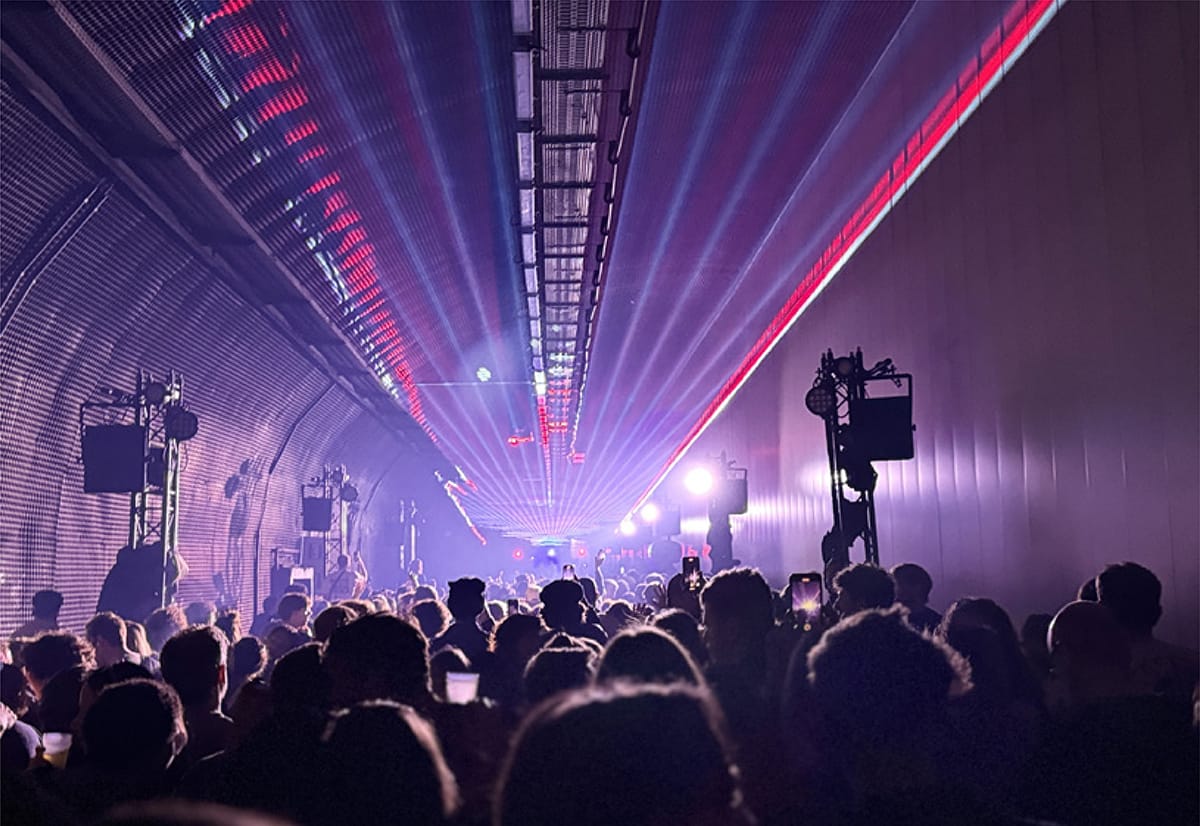Brussels is buzzing


What does Vooruit.brussels want?
Vooruit.brussels wants to create an environment where the potential of our capital can grow. Where artists get the support they need. Where nightlife is an integral part of culture. A city that is fully alive. We have already worked hard towards that during this legislature. Great strides have been made under Pascal Smet and Ans Persoons. Vooruit is the party par excellence that really rolls up its sleeves for Brussels nightlife.
The recognition of nightlife as Brussels cultural intangible heritage was a first symbolic step in valuing club culture. This way, we can also protect it when problems arise. We are doing the same for our café culture.
We introduced the agent of change principle in early 2024, something the sector had long been calling for. This principle states that when new homes are created around a nightclub, they will be required to adapt and provide adequate insulation. So the responsibility to provide a good night's sleep will be placed on the new development, whereas today it is not. For existing housing around nightclubs, when it appears that quality of life can no longer be guaranteed, we offer the possibility of expropriating these properties as a very last resort.
Conversely, a new nightclub in an existing residential area will, of course, have to take the necessary measures itself to guarantee quiet nights for residents. With this principle, we have a good balance between allowing nightlife in the city and ensuring the quality of life in a neighbourhood.
Aan presentatieplekken is er geen gebrek in Brussel, maar er is een grote nood aan creatieplekken. In verschillende grote steden is er een atelierbeleid (Gent, Antwerpen, Leuven, …) waar een atelierorganisatie nauw samenwerkt met het stadsbestuur. Het institutionele kluwen in Brussel is te ingewikkeld en kunstenaars weten niet waar ze terecht kunnen als ze op zoek moeten naar een ruimte. Dankzij Vooruit.Brussels werd er deze legislatuur actief ingezet op het creëren van extra atelierruimtes via ‘Plan Atelier’. Er kwamen meer dan 200 studio spaces were added, both on a temporary and a permanent basis. The regulations on temporary use also became a lot easier this legislature, increasing the opportunities for artist studios in temporary occupations. In this way, unused spaces are temporarily given a new life before definitive renovation and use.
Nightlife
- We appoint a minister to be in charge, who consults with the relevant mayors on a common vision and resolves any potential problems. In this way, we seek a good balance between nightlife and the well-being of Brussels residents.
- Relations between nightlife venues and the authorities or event organisers and the authorities (local and regional authorities, neighbourhood committees, police and fire brigade) could be improved. The approach of each of the 19 Brussels municipalities to nightlife is different, or sometimes even inexistent. We therefore recommend a single regional framework.
- The Brussels Capital Region is making extra efforts in the search for infrastructure. Accessible, affordable, and conveniently located venues for going out are essential for a thriving nightlife. We activate unused spaces and transform them into vibrant nightlife spots. Owners of vacant properties who make their infrastructure available for temporary concepts while waiting for planning permission receive support in this process. We also renovate existing spaces so that they can open as party venues.
- We ensure that nightlife encounters fewer obstacles when it wants to establish itself somewhere, for instance by also allowing this function in zones where it does not cause nuisance to local residents, such as industrial zones along the canal. That way, nightlife can develop more easily on temporary or permanent sites.
- Nightlife is an important part of city life. Brussels is a vibrant capital that lives 24/7. We are fighting the petering out of Brussels, but we are concerned about the noise caused by nightlife. Festivals and nightlife should remain possible in Brussels. We are designing a framework around this so that people can enjoy themselves, but it remains viable for residents.
- We do not make it unnecessarily complex to give nightlife sufficient opportunities. Temporary initiatives should be able to apply easily for temporary permits.
- Those who go out should be able to do so without encountering violence, harassment, transgressive behaviour or gender stereotyping. We support sensibilisation and information campaigns, training and action plans, hotlines and safe(r) spaces around these issues with a view to reducing risk and creating lasting and sustainable awareness.
Artists
- In Brussels, there are almost 50 politicians responsible for culture. We are striving for a single metropolitan cultural policy.
- We want to create one clear point of contact for artists. A lot of support is possible in Brussels, but due to the maze of channels and competent authorities, many artists can no longer find their way around. We are working on setting up a unified culture desk. The Brussels culture desk should be multilingual and build on the existing Flemish culture desk and the yet-to-be-established French community desk.
- In cities such as Berlin and Amsterdam, the government manages some of the spaces used as studio spaces. Brussels should do the same. Not only for long-term vacancies, but also for new buildings, we should think about mandatory studio spaces. We ask perspective.brussels to conduct a study on the supply and demand of spaces, required surface areas and available budgets.
- Based on this, a master plan for cultural infrastructure should be drawn up and a city-wide, transversal, and cross-policy studio management policy should be developed in collaboration with artists.
- The existing platforms inventimmo.brussels, spots.brussels and temporary.brussels should have a coordinating role and link supply to demand. We are looking at the example of Open Creatives Ghent, a cocreative online platform that brings all parties together and provides an overview of spaces to be shared. In this way, we ensure that the different parties are aware of the supply and the needs. We are making these platforms better known to stakeholders.